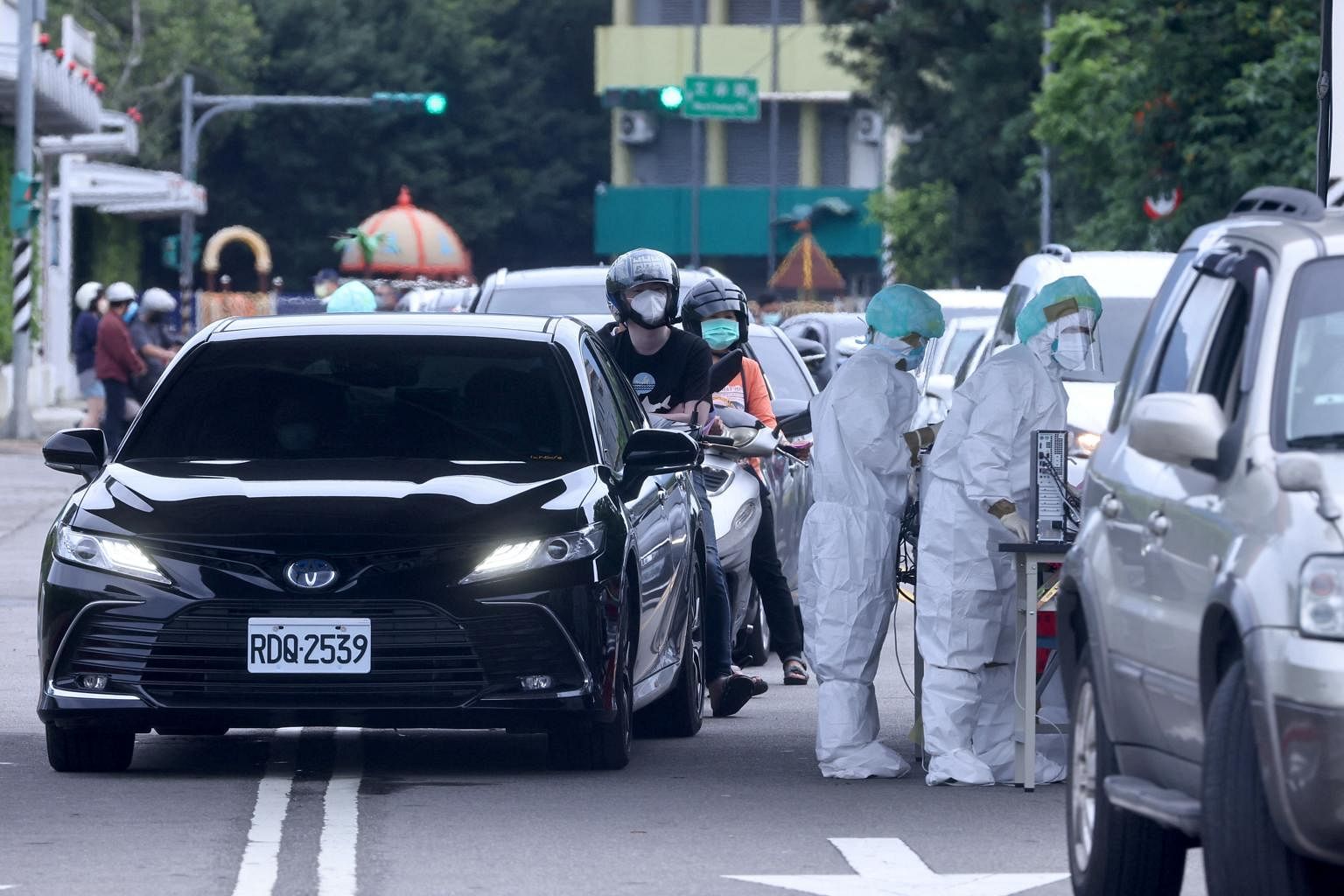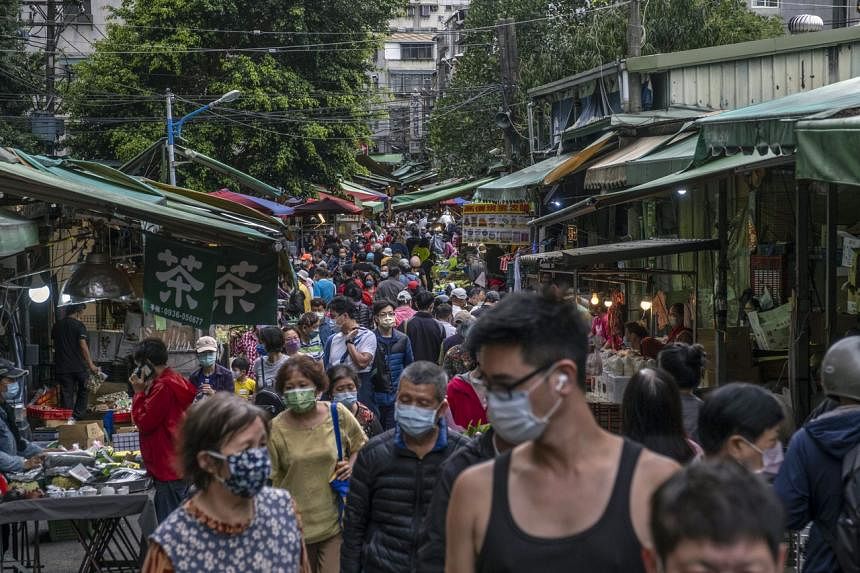TAIPEI - Even as Covid-19 numbers in Taiwan hit another record high of 57,188 locally transmitted cases on Wednesday (May 11), local experts welcomed the island's policy shifts towards coexisting with the virus.
Among the latest changes the quarantine period for mild or asymptomatic Covid-19 cases and for returning travellers has been reduced from 10 days to seven.
"For the world to return to 'living normally', all countries must go through growing pains in co-existing with the virus," said Associate Professor Wayne Gao at Taipei Medical University's College of Public Health.
He pointed out examples of other places in Asia that have relaxed Covid-19 restrictions to live with the virus, including Singapore, South Korea and Hong Kong.
“They have all recorded Covid-19 deaths that surpassed Taiwan’s death count by 10 times this year, but they still choose to progress in this direction… If most countries can do it, so can Taiwan,” said Prof Gao.
A string of local outbreaks that began in early April due to the highly-transmissible Omicron variant saw domestic daily cases cross 1,000 on April 15, continuing their exponential surge to hit 16,936 on May 1 and Wednesday's 57,188.
Additionally, there were eight Covid-19-related deaths reported on Wednesday, all of whom were in their 60s to 90s, with five of them unvaccinated. The vast majority of the cases were asymptomatic or mild, while 60 were moderate and nine severe.
With new cases still surging unabated, both politicians and media personalities have slammed the government for its sudden pivot to coexisting with Covid-19, as well as the lack of appropriate medical resources for those infected.
Main opposition party Kuomintang's deputy chairman Sean Lien criticised the sudden policy change, which he said happened "without careful planning beforehand".
He accused the government of wanting to win over voters by relaxing Taiwan's previously strict Covid-19 restrictions. Taiwan's local elections will be held in late November this year.
In response, Premier Su Tseng-chang said Taiwan has been scaling back its rules "step by step and according to plan".
"Taiwan is not about to just go into lockdown like China, nor is it like countries that have chosen to co-exist with Covid because they were struggling to keep Covid contained," the premier continued.
In response to people who have criticised the government's decision to abandon its zero-Covid-19 policy, Associate Professor Chao Ming-wei, a toxicology researcher in Taipei who often shares analyses on social media, said: "'Zero Covid cases' is only going to isolate Taiwan.
"How much resources do we have to keep the daily case count at zero or continue going into lockdown? All diseases will cause deaths. If one wants to survive, we need to be equipped with the correct medical knowledge."
As daily case numbers continue to climb, Taiwan's health authorities have almost new guidelines each day for those who tested positive and their close contacts.
The changes include relaxed quarantine rules and new protocols that encourage patients to make appointments for video calls with physicians while isolating at home.
People who test positive are to quarantine at home for a week, followed by another week of "self health-monitoring", during which they are discouraged from going to public places and taking public transportation.
Household members of those diagnosed with Covid-19 are to self-isolate for three days and monitor their health for an additional four days.
To avoid further overwhelming front-line medical workers, who have had to deal with long lines of people waiting for a polymerase chain reaction (PCR) test in recent weeks, people who live with confirmed cases will formally be considered Covid-19-positive from May 12 if they test positive in an antigen rapid test (ART) during self-isolation. Under previous guidelines, one had to get a PCR test after a positive ART result in order to be officially diagnosed with Covid-19.

Since 99.75 per cent of Taiwan's confirmed cases have been asymptomatic or mild this year, Health Minister Chen Shih-chung said on Monday that the current outbreak may peak at the end of this month or in early June, and Covid-19 may be downgraded from a Category 5 notifiable communicable disease to Category 4 in July, indicating that the virus is less serious in Taiwan.
This could see Taiwan's border controls relaxed, he added.
Dr Chen said Category 4 guidelines would still mandate those with Covid-19 to undergo quarantine and be treated if symptoms warrant, but those who tested positive have a longer window of 24 hours to one month to report their illness to authorities. Under Category 5 guidelines, a Covid-19 diagnosis must be reported within 24 hours.
Professor Chen Hsiu-Hsi of National Taiwan University's Institution of Epidemiology and Preventive Medicine welcomed news of the potential downgrade.
"I think this is the right direction to go in, as Omicron causes milder symptoms and may gradually become like the flu," said Prof Chen.
As at Wednesday, Taiwan has recorded 505,455 Covid-19 cases and 951 deaths since the pandemic began in early 2020, with 493,410 being domestically transmitted cases. Some 80.6 per cent of the population have received two Covid-19 vaccine doses, and 62.1 per cent have had their booster shot.


